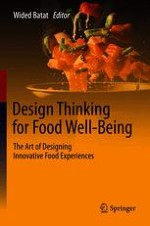2021 | OriginalPaper | Chapter
11. Food Well-Being in the Higher Education Sector: How to Leverage Design Thinking to Create Healthy and Pleasurable Food Experiences Among College Students
Authors : Jane Machin, Brooke Love
Published in: Design Thinking for Food Well-Being
Publisher: Springer International Publishing
Activate our intelligent search to find suitable subject content or patents.
Select sections of text to find matching patents with Artificial Intelligence. powered by
Select sections of text to find additional relevant content using AI-assisted search. powered by
